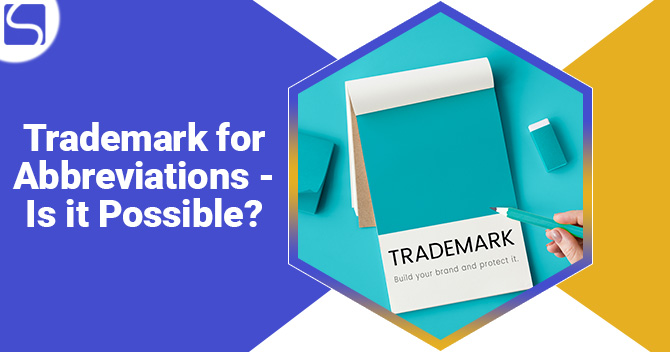Process of Trademark Search in India – An Overview

Karan Singh | Updated: Mar 05, 2021 | Category: Trademark
In today’s world, copies of various things are easily available, especially in India. That is why it is vital to register a trademark for your brand name. It protects your brand name, logo, symbol from being copied, misused by any unauthorized person. Before the trademark registration, it is mandatory to go through the process of trademark search in India. It let you know whether the brand is available for trademark registration or some already registered the trademark or applied for a similar brand name. In this blog, we discuss the meaning, types, and the process of Trademark Search in India.
Table of Contents
Definition of Trademark Search – Overview
We already know that trademark searches are a vital part of trademark ownership, but many companies in India miss the mark to carry out regularly. Trademark search tells you if there are similar trademarks available or not, and it gives an idea of where your trademark stands. The process of trademark search is a crucial part of trademark registration. Any person doesn’t want to waste money later in any lifelong trademark litigation case when it could have been avoided in the first place by doing a proper trademark search.
Also, Read: Types of Trademarks in India: A Complete Guide
Types of Trademark Search
There are two types of trademark search in India, and you can check the same below:

Knock-out Search
This trademark search is referred to if the trademark is likely to fail in securing a trademark registration to be determined by the “National Trademark Register”.
- Possibilities of Knock-out: It consists of applied trademarks that are already registered and those trademarks that are not registered. It also contains registered trademark applications that have been cancelled in the past. The trademark database will identify close matches or any identical trademark that contains the word mark in the search question. For examples, it only includes trademark searched itself and not the close modifications on the marks. If the expected trademark was a “Toy Company”, the applicant is searching for the result for Toy Company but not a toy store, but these trademarks can come into inequality with Toy Company due to the same meaning of both names.
- Diligence of Knock-out Search: It provides the applicant data regarding the subjected trademark that fails to meet further searching requirements. It also describes that an estimated trademark is possible to be in encounter with the registered trademark. A knockout search is beneficial for trusting on specific data rather than putting extra costs to track those trademark.
Full Search
Full Search in the trademark system covers all the important features and trademark protection appearances. It shows how close they are to any mark and searches the companies that are using similar software. For every search, the results are collected into a search report enclosing all the vital data. This contains an identical trademark and difference to the subject mark covering all the goods and services related. A lawyer examines the result repost, which is why it takes a long time.
- Full Search Possibilities: This type of trademark search is normally split down into the country’s data based on a trademark system. In some trademark, systems safeguard the Office of Organization in the core offices in various states all over the European Union. The trademark search ground should be parallel to the countries where the applicant is registering the trademark. There are many methods to protect the trademark within each state platform that would be integrated into the process of trademark search. In India, rights of a trademark come from state registrations, national registrations and common law use. Hence, the full search results incorporate the National Register, State Register, and possible common law rights foundations. Those contain the benefits of the trademark on the registered business name and domain names. The reported results will incorporate the trademarks identical to the mark for every trademark safeguard system, which is the subject for trademark search. The search will contain marks carrying all different and unique words from the trademark if the marks are made up of many words.
What is the Process of Trademark Search?
The process of Trademark Search in India is the most important part of trademark registration if the search of a trademark is not done properly then there are chances of trademark rejection and objection of trademark application.
Following are the steps involved in trademark search:
- Step 1: Class Search: The first and most vital step during a trademark search is selecting the right class. The Trademark Ministry has categorized different goods and services into 45 classes. Hence, one has to select the correct class for the service or product. Sometimes, a product seems to fall in more than one class, so one can select an appropriate class or select the right classes as per the description of goods or services. From the portal of Trademark Ministry, the class can be selected from the arrangement of goods and services.
- So for that, you have to visit the portal of Trademark Minister.
- After visiting the website, in the tab “Search Term” enter your product or service, and it will show the related list of classes as under. Therefore, it is best to select the most appropriate class while conducting the process of trademark search.
- Step 2: Trademark Search from the Portal: Once you select the class, the next step in the process of trademark search is to check the brand name availability following the below steps:
- Open the portal and in search type select “Word mark” from the drop list.
- In the 1st row, you will find another drop list in front of word mark, select “Contains” and write your brand name in the given box.
- In the 2nd row against class enter the class number where you want to search your brand name and click on “Search”.
- After that, you will check all the related brand names.
- Now select Phonetic from the 1st drop-down list against Search Type and enter the brand’s name and class and search again as under.
- It is essential to check the name of the brand phonetically because it may be that there are no similar or identical brand names, but there are some brand names which are similar.
- The trademark ministry will not approve the trademark application even there is a phonetically similar brand name.
Conclusion
You can search the availability of a brand name through this guide, but it is recommended to take the help of professionals because a professional has knowledge about the trademark laws and the process of Trademark Search which will help you to make a better decision.
Also, Read: What are the Violations of Trademark? – A Complete Guide














